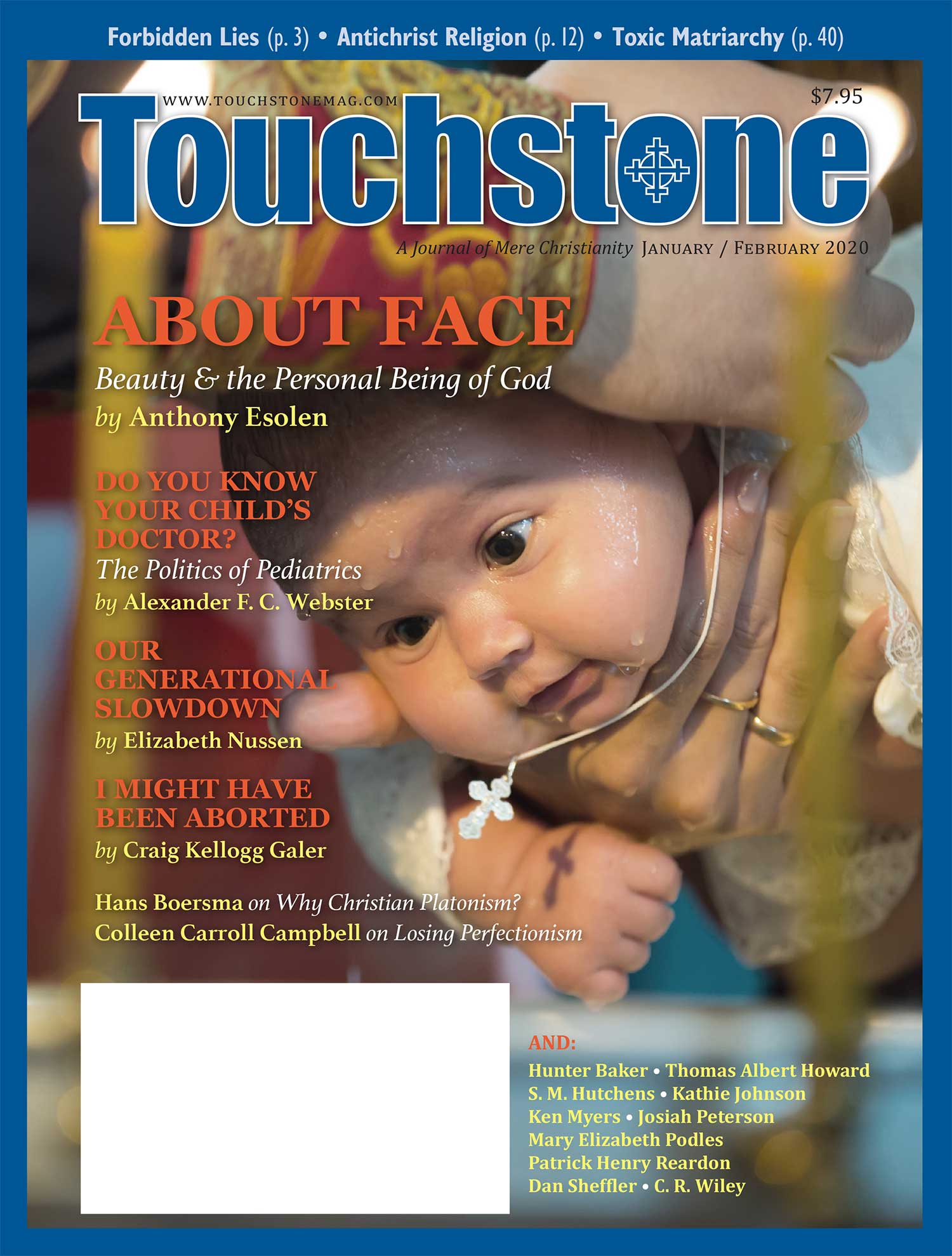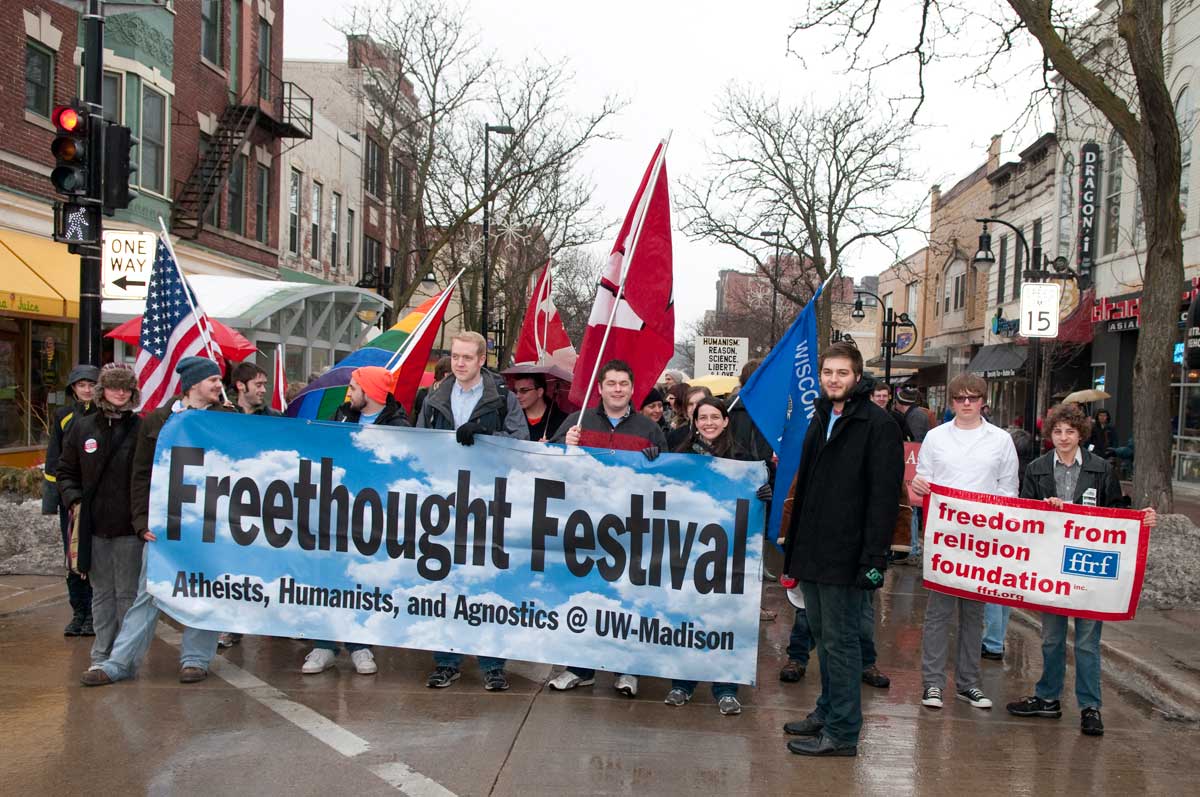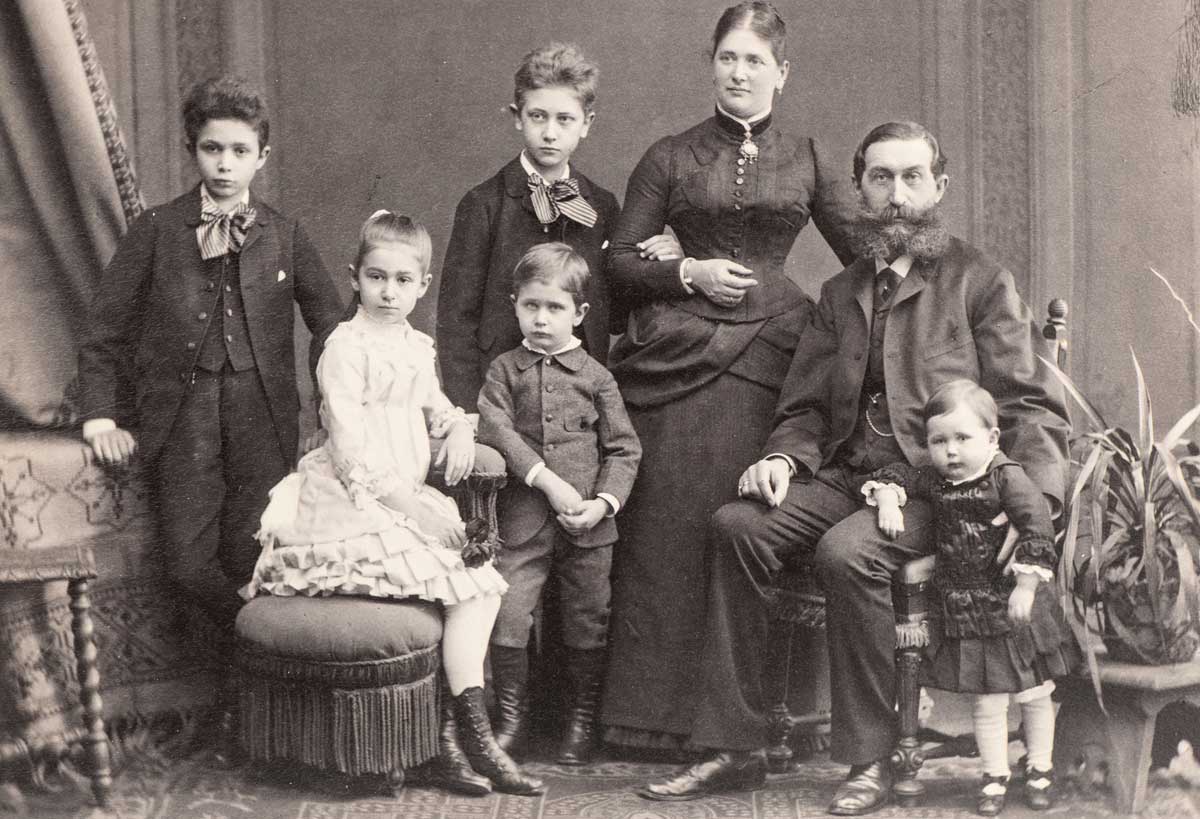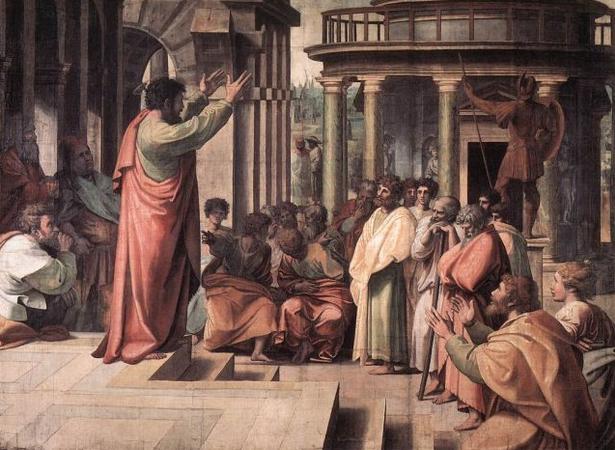Feature
Do You Know Your Child’s Doctor?
The Politicization of Pediatrics in America
News headlines pertaining to children’s health have focused, in recent years, on the return of measles, the debate over vaccinations, and the hazards of vaping and bullying. However, those issues of genuine concern represent only a portion of the risks to our children.
The battle for the souls of our children began in the late 1960s, when the godless among us who defiantly rejected the human “soul” and its divine Creator infiltrated the public schools of America as teachers and administrators.
The battle for the bodies of our children began in 1980, when the American Academy of Pediatrics (AAP) initially supported radical sexual autonomy and contraception for adolescent children without parental consent.
The battle for the psyches of our children began in this century, when willfully confused and perverse ideologues adamantly insisted on pseudo-science grounded in the mercurial notion of “gender,” a historically linguistic term pertinent to inflected languages but woefully misapplied to divinely engineered human biology. Perhaps this third battlefront will finally motivate parents, grandparents, and others concerned about our children and grandchildren to say, “Enough! Hands off our kids!”
Jesus of Nazareth, the Lord God and Savior acknowledged by all Christians, warned the world in no uncertain terms against mistreatment of children or causes that would lead them to lose their faith in him:
Truly, I say to you, unless you turn and become like children, you will never enter the kingdom of heaven. Whoever humbles himself like this child, he is the greatest in the kingdom of heaven. Whoever receives one such child in my name receives me; but whoever causes one of these little ones who believe in me to stumble, it would be better for him to have a great millstone fastened round his neck and to be drowned in the depth of the sea. (Matt. 18:3–6)
And yet not only our society and politics, but also the pediatricians who care for our children in the United States are divided into two warring camps along ideological, even spiritual lines.
How did this happen?
The Moral Slide of the AAP
Founded in Portland, Oregon, in 1929, the American Academy of Pediatrics bills itself as “an organization of more than 67,000 pediatricians committed to the attainment of optimal physical, mental, and social health and well-being for all infants, children, adolescents, and young adults” (all AAP quotations and data here are from the AAP’s own website: aap.org). That number reflects a sizable majority of the more than 91,000 physicians who identified themselves in a 2011 survey as a “pediatrician,” “pediatric medical subspecialist,” “pediatric surgical specialist,” or “pediatric-focused physician” in the United States.
To its credit, the AAP has spearheaded numerous worthy initiatives in child healthcare regarding immunizations and vaccines for children, battered child syndrome, accidental poisoning, infant and child passenger safety, nutrition, sudden infant death syndrome (SIDS), and childhood obesity. In October 2016, Dr. Dimitri Christakis of Seattle Children’s Hospital and Dr. Jenny Radesky, Assistant Professor of Pediatrics at the University of Michigan Medical School, served as lead authors of an AAP policy statement on “Media and Young Minds,” which provides invaluable guidance to parents of children up to the age of 5 for reducing the youngsters’ screen time on tablets and smartphones to mitigate the brain damage that excessive exposure to such devices causes.
However, in the last thirty years, that pediatricians’ guild has ventured into turbulent seas of moral and political controversy and lost its heretofore universal appeal. An internal survey in 1991 revealed that more than 56 percent of the AAP’s membership supported abortion-on-demand for adolescents, and more than 60 percent favored abortion for adolescents for one or more specific reasons. In 2017 the AAP’s Committee on Adolescence issued a policy statement that boasted: “For 2 decades, the AAP has been on record as supporting the access of minors to all options regarding undesired pregnancy, including the right to obtain an abortion.”
Purporting to affirm “the value of parental involvement in decision-making by adolescents and the importance of productive family communication in general” as “foremost an advocate of strong family relationships,” that policy statement also declared that “legislation mandating parental involvement does not achieve the intended benefit of promoting family communication, and it increases the risk of harm to the adolescent by delaying access to appropriate medical care.” That is classic pro-abortion-speak commonly spouted by other radically politicized organizations such as Planned Parenthood and NARAL Pro-Choice America to promote child “rights” over parental “rights” on the profound moral issue of willfully terminating a minor child’s pregnancy.
An AAP policy statement on office-based care for so-called LGBTQ youth, published in July 2013, updated and expanded previous policy statements from 1993 and 2004 on “sexual minority teenagers.” The 2013 statement is chock-full of political buzz words such as “homophobia,” “heterosexism,” “gender identity,” “gender expression,” and “transgender,” as well as confident proclamations (“sexual minority youth should not be considered abnormal”) and recommendations, including these:
Transgender adolescents need to be supported and affirmed; they need education and referral for the process of transition and about avoiding the pitfalls of using treatments that were not prescribed by a licensed physician.
Pediatricians should support or create gay-straight alliances at schools and support the development and enforcement of zero-tolerance policies for homophobic teasing, bullying, harassment, and violence.
The AAP’s public advocacy of a radical leftist political agenda also includes support for adolescents’ receiving access to the full range of contraceptive procedures and devices in accordance with Title X of the federal Public Health Services Act of 1970, and for protection of “minors’ confidentiality” under the Health Insurance Portability and Accountability Act of 1996 (HIPAA). What does that mean for parents or guardians of minor children? Nothing less than AAP pediatricians furnishing contraceptive devices to their children without their knowledge or consent, and denying them access to the pertinent medical records:
As an additional protection for minors’ confidentiality, HIPAA states that if there is no applicable state law about the rights of parents to access the protected health information of their children, pediatricians (or other licensed health professionals) may exercise their professional judgment to provide or deny parental access to the records.
An Alternative
Enter a new guild of pediatricians resolutely opposed to the AAP’s embrace of policies and practices that routinely preclude or exclude parents or guardians as the decision-makers on behalf of their minor children.
The official website of the American College of Pediatricians (ACPeds) identifies ACPeds as an “organization of pediatricians and other healthcare professionals” established in 2002, headquartered in Gainesville, Florida, with some 500 “members in 47 states, and several countries outside of the U.S.” (acpeds.org/about-us).
Even a quick glance at the list of Core Values of the College on its website reveals that ACPeds pediatricians are unabashed, dauntless defenders of the same traditional concepts of marriage, parental authority and duties toward their children, and human sexual identity and behavior that the AAP and virtually the entire intelligentsia in America so resolutely oppose and seek to replace. ACPeds declares that its membership:
- Recognizes that there are absolutes and scientific truths that transcend relative social considerations of the day.
- Recognizes that good medical science cannot exist in a moral vacuum and pledges to promote such science.
- Recognizes the fundamental mother-father family unit, within the context of marriage, to be the optimal setting for the development and nurturing of children and pledges to promote this unit.
- Recognizes the unique value of every human life from the time of conception to natural death and pledges to promote research and clinical practice that provides for the healthiest outcome of the child from conception to adulthood.
- Recognizes the essential role parents play in encouraging and correcting the child and pledges to protect and promote this role.
- Recognizes the physical and emotional benefits of sexual abstinence until marriage and pledges to promote this behavior as the ideal for adolescence.
- Recognizes that health professionals caring for children must maintain high ethical and scientific standards and pledges to promote such practice.
- Recognizes the vital role the College has in promoting quality education for parents, physicians, and other health professionals.
Similarly, ACPeds’ already long list of detailed “official position statements” mirrors that of AAP’s in breadth and depth, but its positions are, of course, diametrically opposed to those of the AAP on the same issues. On the three hot-button issues discussed above, ACPeds supports traditional parental authority and responsibility over a child’s “right,” as concocted in the present era, to contraceptive devices, abortion, and “gender” identity and “transformation” without parental knowledge or permission. It should come as no surprise, therefore, that ACPeds is routinely vilified (or “demonized” in the current political-speak) as a “hate group” and that its policies and medical practices are denounced as “anti-science” by folks at the opposite end of the political/moral/medical spectrum. Among ACPeds’ most ferocious detractors are the predictable lions of the left, most notably the Southern Poverty Law Center (SPLC) and the so-called Human Rights Campaign (HRC).
The Trojan Horse of “Best Interest”
The philosophical and political groundwork for the battle of the pediatric associations in America dates back, effectively, to September 2, 1990, when the United Nations issued its “Convention on the Rights of the Child.” That Olympian proclamation reflected the growing global consensus among pediatricians and Western political and cultural elites that minor adolescent children are self-determining, self-realizing, “autonomous” individuals who possess “human rights” to freedom of expression, thought, conscience, religion, association, assembly, and education—even in opposition to their parents’ or guardians’ desires—and are fully capable of making their own moral decisions.
In a 2010 article in the Journal of Medicine titled “Parental Authority and Pediatric Bioethical Decision Making,” philosopher Mark J. Cherry notes the stark reality that the Convention “drives a legal and moral wedge between parents and their children.” Cherry attributes that hostility to parents to the radical secularism of the “modern liberal state,” which the authors of the UN Convention take for granted as a universal political philosophy. Citing John Rawls as a prime example, Cherry contends that “advocates of the liberal state seek to limit the bonds of family loyalty, to reduce the influence of parental authority vis-à-vis children, and to paint the traditional family in an unflattering light with wide-ranging implications for the bioethics of pediatric decision making.” Therefore, the key question is, “Who is most appropriately situated to define and defend the best interests of the child (e.g., bureaucrats, bioethicists, or parents)?”
The concept of “best interest” is the Trojan Horse, as it were, that enables non-parental elites—whether government bureaucrats or bioethicists, both academic and professional—to separate children from their parents as independent moral and medical decision-makers. In “Toward a Coherent Account of Pediatric Decision Making,” another insightful article in the same issue of the Journal of Medicine, philosopher Anna S. Iltis exposes the house of cards that the UN Convention proposes. The “three values or principles” that the Convention affirms—the central importance of the family, decisions based on the best interest of a child, and robust participation in decision-making based on “social and political rights that states and parents must respect”—cannot be maximized simultaneously or consistently. On the contrary, they are subject to “inherent conflicts” that mitigate the desired end in every case.
Iltis points, for example, to a typically excruciating moral dilemma: a boy is in need of a kidney transplant for which his 4-year-old sister would be “a good match,” and there is no “cadaveric donor” available. Whose “best interest,” Iltis asks, ought to prevail: the gravely ill brother’s or the healthy sister’s, for whom the surgery of removing a healthy kidney may risk her life?
That, in turn, prompts another question: Who gets to make the decision in that agonizing situation? The UN Convention invests the state with the ultimate authority to enforce the “best interest” standard: “The state stands in judgment of whether parents have done what is best for children and hence whether or not to interfere in the family to alter decisions, remove children, or require parents to take different actions” that may be “deeply opposed to a family’s religious or cultural commitments.” In the given scenario, if the parents chose to spare the sister because they believed, on religious grounds, that rendering active, willed, gratuitous harm to her (i.e., the ordeal of surgery and possible death as a complication) could not be justified even if their son must die from a natural bodily malfunction that was neither willed nor desired, they would have no authority to act on their convictions.
Moral philosophers might conclude that an act of omission—not pursuing a remedy—is less grievous than an act of commission—such as risky invasive surgery on a healthy child. Christian parents in this case might be able and willing to grieve over the loss of their son in the hope that the child would be with the Lord after death. But according to the UN Convention, neither the philosophers nor the Christian parents would have any say in the matter if the state (that is, the Platonic philosopher-kings with ultimate power and authority) deemed that the “best interest” of the ill son mandated a different moral and medical decision.
Lest we dismiss or downplay the influence of the UN’s political and moral doctrine in the United States, Mark Cherry, in his 2016 book, Sex, Family, and the Culture Wars, points to Section 22-8-6 of the Code of Alabama, one of the most politically conservative and predominantly Christian states in the Union, which declares: “Any minor may give effective consent for any legally authorized medical, health or mental health services to determine the presence of, or to treat, pregnancy, venereal disease, drug dependency, alcohol toxicity or any reportable disease, and the consent of no other person shall be deemed necessary.”
And who would enforce that “consent” against parents who would object in the “best interest” of their own child? Why, the state of Alabama, of course!
A Challenge
Twenty years ago, Fr. Stanley S. Harakas, the dean of Orthodox Christian moral theologians in America, summarized the assumptions of the “secularist perspective” that reflects what he called “secular bioethics” in his book Wholeness of Faith and Life: Orthodox Christian Ethics (Part Three):
(1) that there is a “general secular bioethical and health care policy” that is unified to the point that it is widely accepted; while (2) religious traditions are “particular and diverse”; that (3) the “secular” is the standard and norm, while the religious traditions need to defend their involvement in the formation of public policy; and (4) that the secular has an objectivity to it that religious traditions do not.
Many Protestant and Roman Catholic pro-family organizations in the United States, such as Focus on the Family, the Family Research Council (FRC), Catholic Family and Human Rights Institute (C-FAM), and the American Life League (ALL)—each armed, respectively, with Protestant or Roman Catholic theologians and social commentators—have, for many years, taken Fr. Stanley’s third point for granted and attempted to shape public policy on family issues from the riches of their respective theological and moral traditions. Those views and activities are well known (and either celebrated or denounced, depending on the morality and politics of the observer) and need not be rehearsed here.
However, the religious tradition that Fr. Stanley and I share—Orthodox Christianity—has few prominent, scholarly advocates for essentially the same public policy regarding the physical and moral health of children and who gets to decide those questions.
Taking up the challenge in Fr. Stanley’s third point,
I now turn to contemporary Orthodox moral theologians to provide a brief but coherent justification of parental rights, particularly religious parents’ rights, for parents are, or ought to be, the primary, default decision-makers in all matters pediatric.
A Domestic Church & Little Kingdom
First, the purpose and role of the family in Orthodox Christianity have not changed in two millennia. As the late H. Tristram Engelhardt, Jr., declared in a chapter in the multi-author book Glory and Honor: Orthodox Christian Resources on Marriage (2016), “Orthodox Christianity regards the family as a normative socio-biological unity. It is the domestic church. This view supports the autonomy and integrity of the family, such that members of a family are treated somewhat as a state treats its citizens.”
I observe in another chapter in that book that the highlight of the Orthodox (Byzantine) rite of matrimony—the dramatic “crowning” of the bride and groom with facsimiles of royal crowns—signifies the “royal” character of the husband and wife as “king” and “queen” of the little “kingdom” of their household. But they are, at their best, benevolent, self-sacrificing “rulers” of their “subject children,” who are, to continue the metaphor, “princes” and “princesses” with all the duties and rights, as it were, pertaining thereunto.
Whatever Americans may think of regal analogies, anyone who wishes to honor the traditional “nuclear” family of father, mother, and their biological or adopted children, however increasingly uncommon that may be in the twenty-first century, can concur with Engelhardt that the traditional family “thus functions importantly as an intermediate institution between the individual and the state, able to promote the religious, moral, emotional, and social welfare of its members.” I would underscore that insight by stressing that the traditional Orthodox Christian family, or any caring family, serves as a buffer and shield against unwarranted and unwanted incursions by the modern secular state, particularly those aimed at the moral upbringing of children by the religious parents.
Duties over Rights
Second, the duties of parents and children alike in Orthodox Christian families have not changed in two millennia. The Apostle Paul sounded the keynote in his epistle to the Ephesians:
Children, obey your parents in the Lord, for this is right. “Honor your father and mother” (this is the first commandment with a promise), “that it may be well with you and that you may live long on the earth.” Fathers, do not provoke your children to anger, but bring them up in the discipline and instruction of the Lord. (Eph. 6:1–4)
For the apostle, and for the Church since the first century, children—in a loving family that “fears the Lord”—are not autonomous individuals, and fathers (and mothers) are not autocratic rulers.
Taking its cue from the Apostle Paul, as well as from the venerable church fathers St. Gregory Nazianzus, St. Basil the Great, and St. John Chrysostom, the Orthodox Church prefers to stress “duties” instead of “rights,” when revealing the divine plan for parents. Four parental duties emerge from the reflections of several contemporary Orthodox moral theologians.
(1) A Duty to Inculcate Virtue: Mark Tarpley, a young Orthodox moral theologian, reminds us in Glory and Honor: Orthodox Christian Resources on Marriage that Christian parents are called by God to lead their children toward theosis, or “the total transfiguration of the entire human person, both body and soul, to the image of Christ,” who is, for Christians of course, God Incarnate.
That entails educating their children in virtue, by both personal example and instruction. In his book, The Orthodox Reality: Culture, Theology, and Ethics in the Modern World (2018), Vigen Guroian, an Armenian Apostolic (i.e., Non-Chalcedonian) moral theologian, warns the Christian parent, “Though a parent may lead an otherwise virtuous life, if he or she neglects the need of the child and fails to instruct the child in godliness, then that virtue does not count for much in the eyes of God.” To be sure, Christian parents are “not the saviors of their children” but rather “their natural teachers.” The inculcation of moral “values”—more properly, virtues—and the shaping of the moral character of children rests primarily with parents, not the public (that is, government) schools or pediatricians or anyone outside the family unit.
(2) A Duty That Is Lifelong: As Tarpley notes, parental responsibility “begins prior to conception and ends at the time of the death of the child.” It does not terminate at some vague “coming of age” moment at the onset of adolescence, when the child, according to the United Nations, is usually capable, intellectually and morally, of making his own decisions concerning sexual behavior and “identity.” To be sure, parental duty naturally abates in both comprehensiveness and specificity as the child grows to adulthood and seniority, but a faithful, responsible parent will never concede his child’s individual “autonomy” and choose not to offer guidance and counsel.
It is precisely during adolescence that Fr. Stanley Harakas perceives a “weak point” in the spiritual and moral formation of Orthodox youth (Health and Medicine in the Eastern Orthodox Tradition: Faith, Liturgy, and Wholeness, 1990). Orthodoxy lacks, it would seem, the sacramental “rite of passage” that Roman Catholicism provides its adolescents through catechetical preparation for “confirmation” (at roughly the same age, I would add, as Jewish boys study for their bar mitzvah). But that is even more reason for Orthodox parents to be aggressively proactive in guiding their own minor children.
(3) A Duty to Pass on the Faith: For St. Gregory of Nazianzus, Tarpley reminds us, “passing on the Faith to children and grandchildren is of serious importance.” This lifelong duty “finds its completion in one’s children, as well as in one’s extended family, developing their own Christ-centered identity and entering the kingdom of God.” This parental role, though supplemented by the local church and its clerical and lay leaders, is unique and inviolate. Neither the state, through its government officials or public-school teachers and administrators, nor pediatricians in private practice may preempt or overrule the faithful, conscientious duty of parents to raise their children in a religious faith group or no religious faith group, the ideology of the UN Convention on the Rights of the Child notwithstanding. Parental decisions concerning the health and physical well-being of their children that may be informed by a religious allegiance and experience ought to be the purview of the parents themselves except in circumstances of extreme urgency.
A case in point is the high abortion rate of children with Down syndrome, which suggests to one loving, appreciative parent of a Down child (David F. Watson), that “parents are often the very ones from whom they need protection.” Mark Cherry proposes in “Parental Authority and Pediatric Bioethical Decision Making” a prudent caveat to allow for the rare exceptions: “A significant burden of proof is normally borne by those outside the family, including the state, to demonstrate that they act with legitimate and sufficient moral authority when presuming to interfere with the authority of the family.” Ironically, neither the federal nor any state government in today’s America is likely to intercede on behalf of a Down child’s life in the womb, if the mother elects to abort him or her.
(4) A Duty to Be Vigilant: Finally, parents, particularly religious parents, and above all, Christian parents, must be always vigilant and ready to act on behalf of their children. Tarpley offers this friendly warning:
Without such ongoing vigilance and discernment on the part of the parents regarding the many possible influences of the surrounding culture upon their children, the children will inevitably become vulnerable to the evil influences in the surrounding culture that threaten to undermine and even completely undo whatever Christian nurturing is being attempted in the home.
Guroian sounds a similar sobering note: “God has placed parents in care of their children’s bodies and souls, and whether a child inherits the kingdom of heaven critically depends on the care he or she receives from his or her parents.”
A Time to Choose Sides
The battle lines for the physical and mental health of our children have been drawn.
On one side is the American Academy of Pediatrics (AAP), a widely respected army of some 67,000 pediatricians, wholly captive to the pernicious secular ideology which holds that minor children have universal intrinsic “rights” to their own bodies, their own sexual identity and practices, and their own sex-related medical decisions. They ordinarily can carry out their decisions without parental permission and often without even informing their parents in advance, but they can be aided and abetted by non-familial third parties, including the pediatricians themselves.
On the other side is the American College of Pediatricians (ACPeds), a minuscule resistance of, at most, 500 pediatricians pledged to uphold parents’ “rights” (that is, duties, as outlined above) ordinarily as supreme in all health and medical decisions concerning their own minor children. The ACPeds also affirms the vital role of the traditional nuclear family of mother-father-children, the inviolability of innocent life from the moment of conception (i.e., fertilization), and the intrinsic moral value and necessity of sexual abstinence before marriage.
Therefore, to the Christian parents and grandparents of minor children, I direct these crucial questions:
- Do you know to which of these two professional pediatric associations your child’s doctor belongs?
- Are you prepared to fulfill your divinely ordained duty as parents to safeguard your minor children from pediatricians committed to the AAP agenda?
Nothing less than your child’s physical, mental, and spiritual health is at stake.
Alexander F. C. Webster (Archpriest), Ph.D., is Dean & Professor of Moral Theology Emeritus at Holy Trinity Orthodox Seminary in Jordanville, New York, and Adjunct Professor of Religious Studies at George Mason University in Fairfax, Virginia.
subscription options
Order
Print/Online Subscription

Get six issues (one year) of Touchstone PLUS full online access including pdf downloads for only $39.95. That's only $3.34 per month!
Order
Online Only
Subscription

Get a one-year full-access subscription to the Touchstone online archives for only $19.95. That's only $1.66 per month!
bulk subscriptions
Order Touchstone subscriptions in bulk and save $10 per sub! Each subscription includes 6 issues of Touchstone plus full online access to touchstonemag.com—including archives, videos, and pdf downloads of recent issues for only $29.95 each! Great for churches or study groups.
Transactions will be processed on a secure server.
more on culture from the online archives

33.1—January/February 2020
Do You Know Your Child’s Doctor?
The Politicization of Pediatrics in America by Alexander F. C. Webster
more from the online archives
calling all readers
Please Donate
"There are magazines worth reading but few worth saving . . . Touchstone is just such a magazine."
—Alice von Hildebrand
"Here we do not concede one square millimeter of territory to falsehood, folly, contemporary sentimentality, or fashion. We speak the truth, and let God be our judge. . . . Touchstone is the one committedly Christian conservative journal."
—Anthony Esolen, Touchstone senior editor











